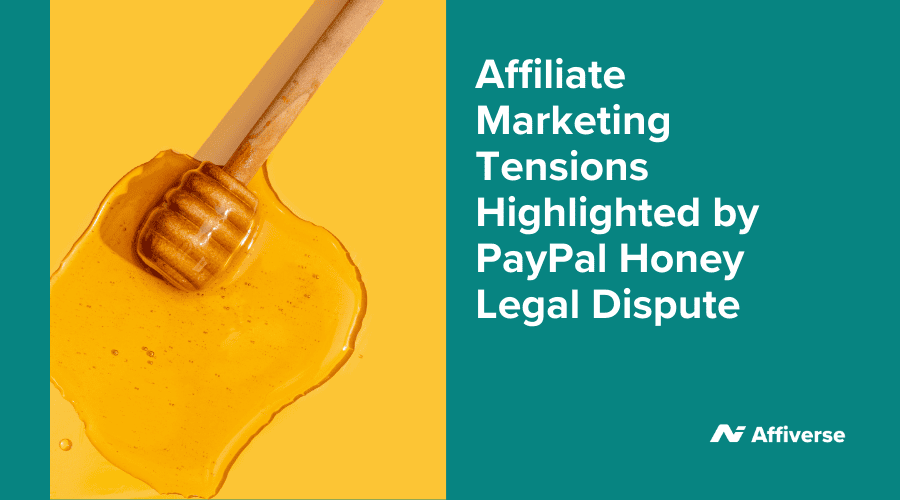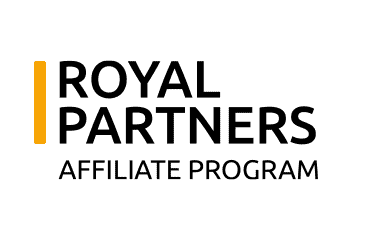Affiliate marketing, a cornerstone of many brands’ digital strategies, is facing renewed scrutiny due to a high-profile legal dispute involving PayPal Honey. The case centres on allegations of unfair practices in commission attribution, highlighting the complexities of affiliate programmes and the need for transparency.
As affiliate marketing grows in popularity, cases like this reveal the challenges of balancing the interests of brands, affiliates, and consumers in a fast-evolving digital landscape.
The PayPal Honey Controversy
PayPal Honey, a browser extension that automatically applies discount codes at checkout, has been accused of engaging in practices that redirect affiliate commissions away from content creators and toward its platform.
The allegations claim that PayPal Honey overrides affiliate tracking cookies from influencers and publishers, effectively taking credit for sales generated by their efforts. This practice, known as “cookie stuffing” or “last-click hijacking,” has sparked a legal battle and raised ethical questions about how affiliate programmes are managed.
The Issue with Cookie Attribution
At the heart of the dispute is how commissions are attributed in affiliate marketing. Most affiliate programmes operate on a “last-click” model, where the affiliate responsible for the final click before a purchase is credited with the sale.
While this model is simple and widely used, it creates opportunities for exploitation:
- Cookie Stuffing: Extensions like PayPal Honey can replace an existing affiliate’s tracking cookie with their own by automating the application of discount codes. This means the original affiliate loses out on the commission they rightfully earned.
- Unfair Advantage: Tools that prioritise last-click attribution without considering the full customer journey can unfairly reward intermediaries while sidelining content creators who drive initial interest.
This system has led to frustration among influencers, bloggers, and publishers who feel their contributions are undervalued or outright ignored.
The Broader Impact on Affiliate Marketing
The PayPal Honey case is more than just a legal dispute—it reflects wider tensions in the affiliate marketing industry. As the space grows more competitive, concerns about transparency, fairness, and compliance are becoming increasingly urgent.
- Erosion of Trust: Affiliate marketing relies on trust between brands, affiliates, and consumers. Cases of commission hijacking risk damaging that trust, leading affiliates to question the integrity of the programmes they participate in.
- Strained Relationships: Content creators and publishers play a vital role in affiliate marketing by building awareness and fostering trust with their audiences. When their efforts go unrewarded, it can strain relationships with brands and affiliate networks.
- Legal and Regulatory Risks: As the industry comes under greater scrutiny, companies engaging in questionable practices risk facing legal action, reputational damage, and tighter regulation.
How the Industry Can Address These Challenges
To ensure the long-term health and sustainability of affiliate marketing, stakeholders need to take proactive steps to address the issues highlighted by the PayPal Honey case.
1. Adopt Advanced Attribution Models
Last-click attribution is increasingly seen as outdated. Brands and networks should explore more sophisticated attribution models that consider the entire customer journey. Multi-touch attribution, for example, rewards all contributors to a sale based on their impact.
2. Implement Transparent Practices
Affiliate networks and programmes must prioritise transparency in how commissions are tracked and awarded. Clear guidelines and robust monitoring tools can help prevent cookie stuffing and other unfair practices.
3. Enhance Affiliate Protections
Content creators need greater protections to ensure their efforts are fairly rewarded. This could include stricter enforcement of affiliate agreements and penalties for parties that engage in unethical behaviour.
4. Educate Affiliates and Consumers
Raising awareness about how affiliate marketing works can empower affiliates to advocate for fair treatment and help consumers make informed decisions about using browser extensions like PayPal Honey.
What Brands Can Learn
For brands, this controversy is a reminder of the importance of managing affiliate programmes carefully. Transparent, fair practices are essential not only to maintain trust with affiliates but also to protect the brand’s reputation.
By working closely with trusted networks, monitoring affiliate activity, and investing in advanced attribution tools, brands can create programmes that reward genuine contributions and foster strong, long-term partnerships.
Looking Ahead
The PayPal Honey legal dispute is unlikely to be the last controversy to hit the affiliate marketing industry. As the space continues to evolve, so too will the challenges it faces. However, with these challenges come opportunities for innovation and improvement.
By addressing the tensions highlighted in this case, affiliate marketing can move toward a more equitable and transparent future—one that benefits all parties involved. For affiliates, publishers, and brands, the lessons of this case are clear: collaboration, fairness, and trust are the foundations of success in this dynamic industry.



















